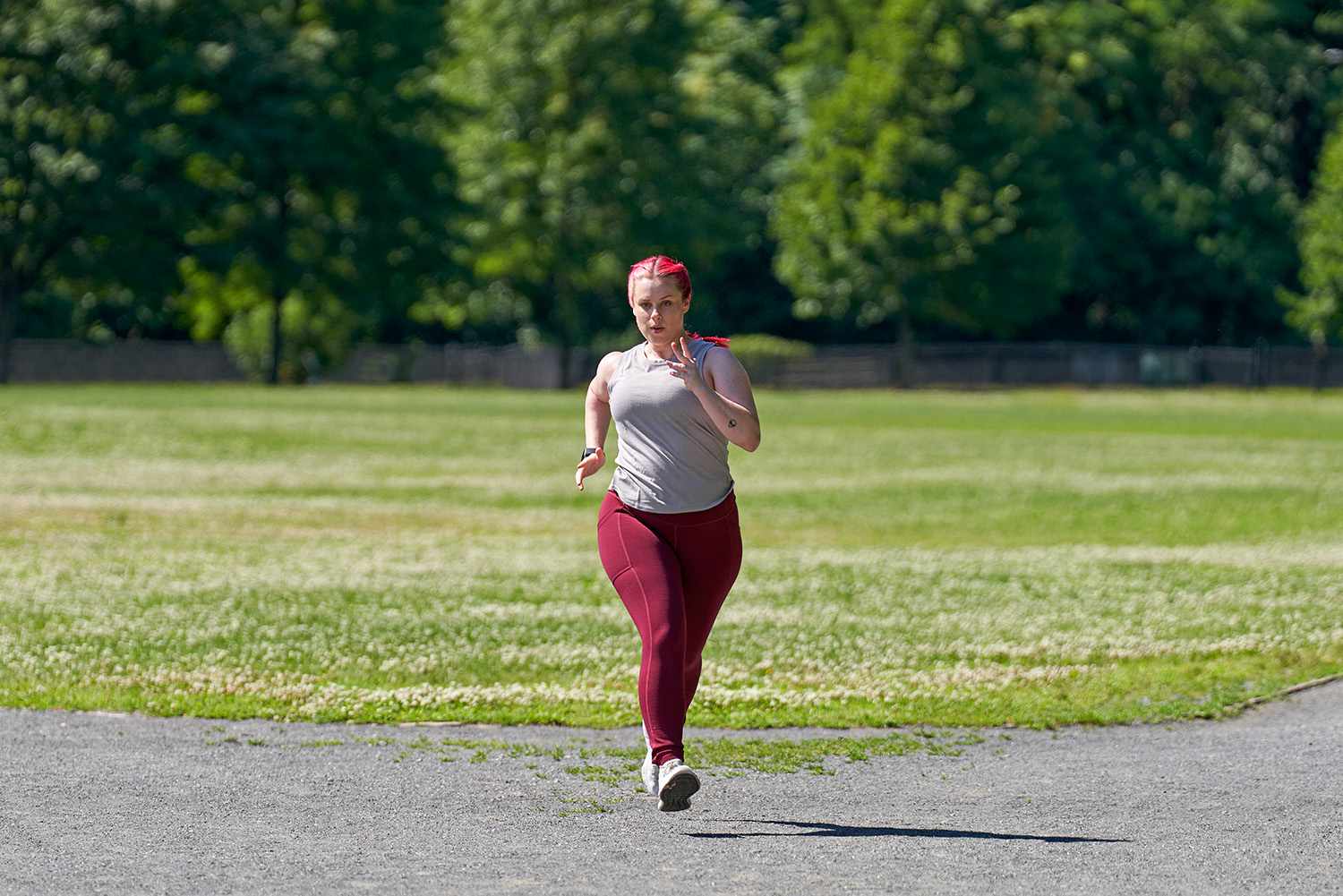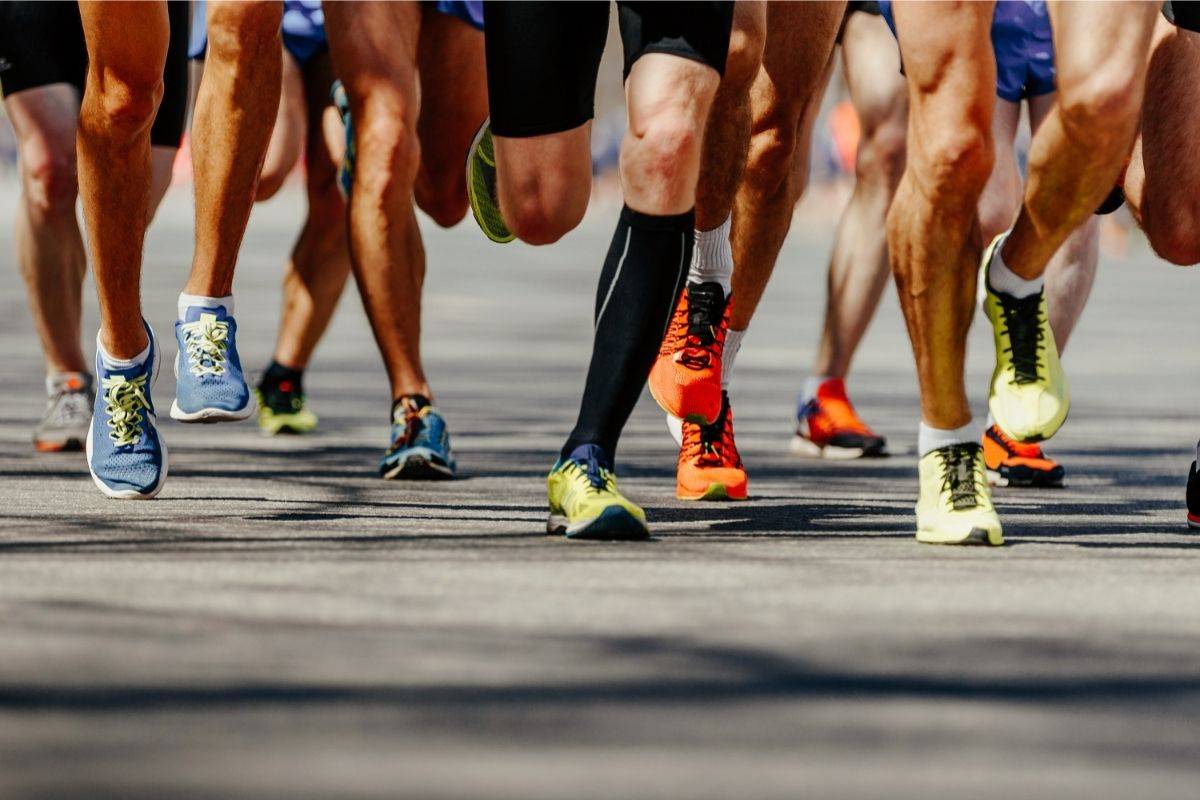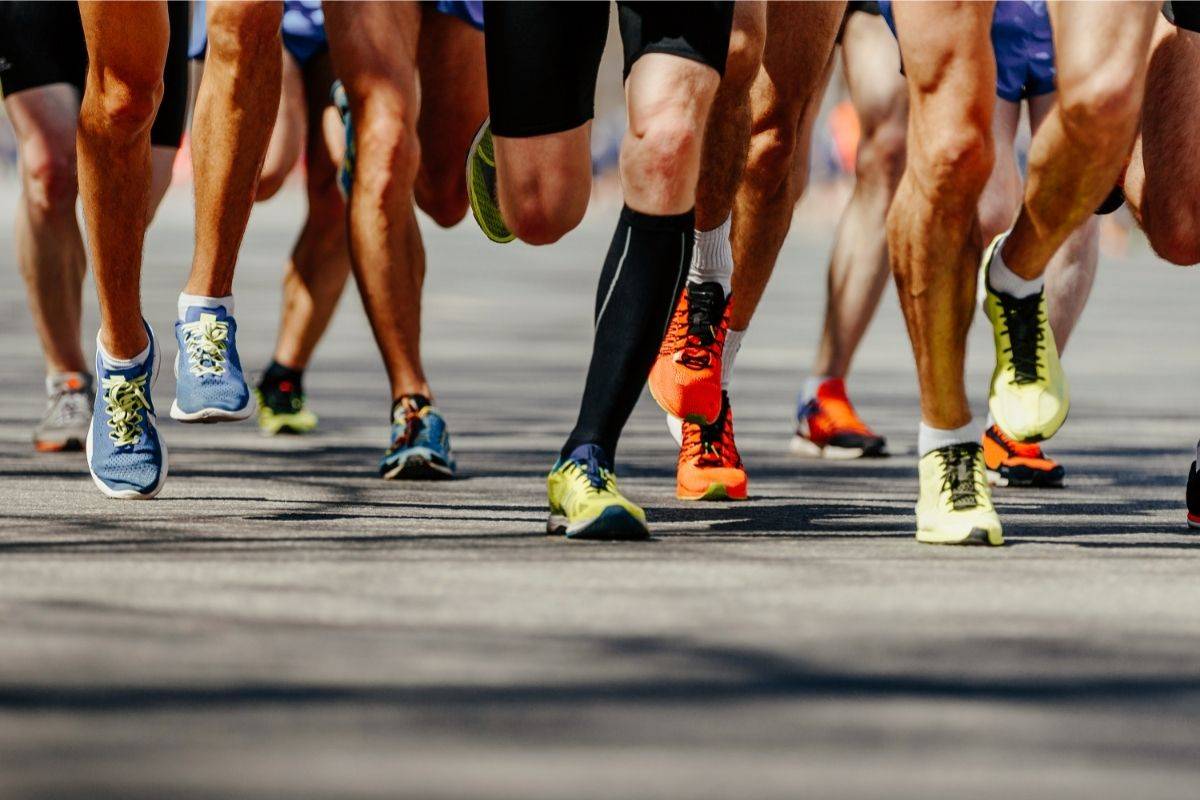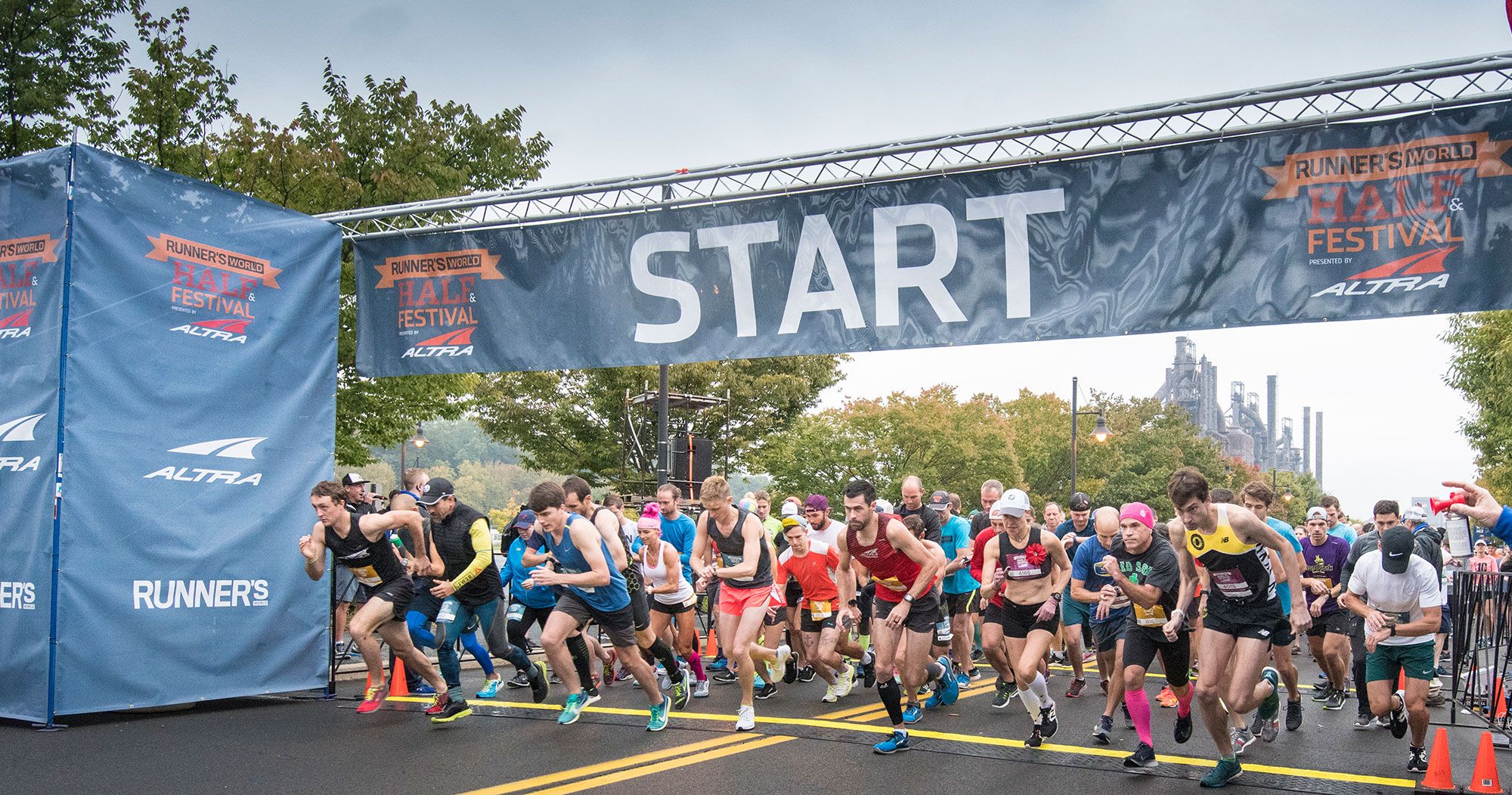Home>Misc>Featured>How Many Calories Do You Burn During A 5K Run
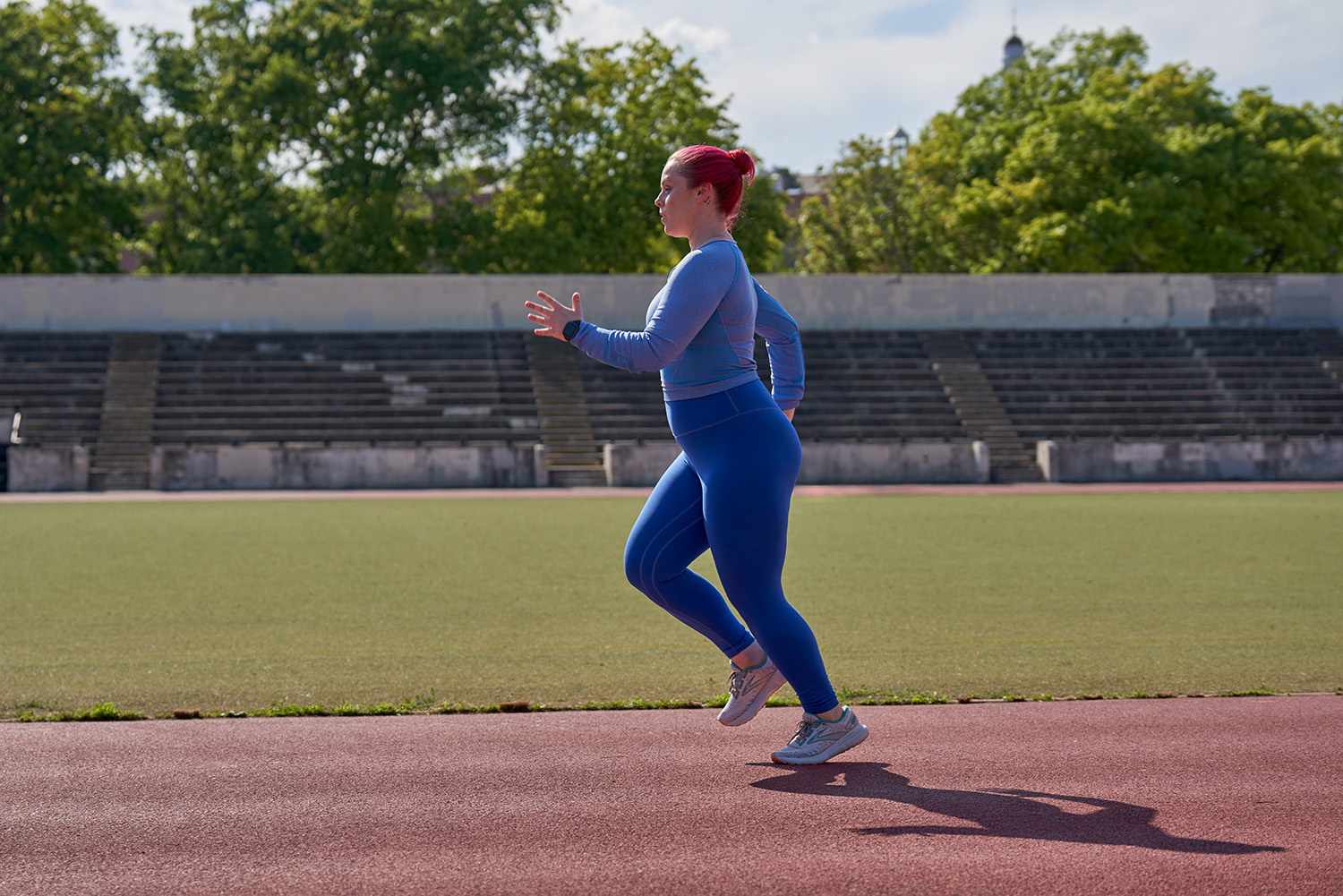

Featured
How Many Calories Do You Burn During A 5K Run
Modified: January 2, 2024
Discover how many calories you can burn during a 5K run. Featured article with expert tips and insights!
Introduction
Running is a popular form of exercise that offers numerous health benefits, including weight loss. If you’re a fitness enthusiast or someone looking to lose weight, you may have heard about the calorie-burning potential of running a 5K. But just how many calories do you burn during this popular distance? In this article, we will explore the factors that affect calorie burn during a 5K run and provide tips on how to maximize your calorie burn.
The number of calories burned during any form of exercise is influenced by various factors, including your weight, running pace, and the terrain on which you run. Understanding these factors can give you a better idea of the calories you can expect to burn during a 5K run.
Calories are a unit of measurement for energy, and the calories you burn during physical activity come from the fuel your body uses to keep you moving. Running is a high-intensity aerobic activity that requires a significant expenditure of energy. The more energy you exert during a 5K run, the more calories you will burn.
Running a 5K, which is equivalent to approximately 3.1 miles, can be a challenging yet achievable goal for many fitness enthusiasts. Whether you’re a beginner or an experienced runner, participating in a 5K race can provide you with a sense of accomplishment and motivation to reach your fitness goals.
As you embark on your 5K running journey, it’s important to remember that everyone’s calorie burn will vary based on individual factors. The most significant factors that influence the number of calories you burn during a 5K run are your weight and running pace.
In the following sections, we will delve deeper into how weight and running pace impact calorie burn during a 5K run. We will also explore the benefits of running a 5K and provide useful tips to help you maximize your calorie burn during this popular distance.
Factors that Affect Calories Burned
When it comes to calorie burn during a 5K run, several factors come into play. Understanding these factors can help you gauge the estimated number of calories you’ll burn during your run and make adjustments as necessary.
1. Weight: Your weight plays a crucial role in determining the number of calories you burn during physical activity. Generally, the more you weigh, the more calories you’ll burn while running a 5K. This is because a higher body weight requires more energy expenditure to move the body. So, a heavier individual will burn more calories compared to someone with a lower weight.
2. Running Pace: Your running pace, or the speed at which you run, also affects calorie burn. It’s no surprise that running at a faster pace burns more calories per minute compared to running at a slower pace. However, it’s important to note that running at an extremely fast pace might not be sustainable for everyone. It’s essential to find a pace that challenges you while allowing you to maintain a comfortable level of exertion.
3. Running Surface: The terrain on which you run can impact calorie burn as well. Running on uneven surfaces like trails or hilly terrain requires more effort, leading to a higher calorie burn. On the other hand, running on a flat surface like a track or treadmill may require less energy expenditure. Keep this in mind when choosing your running route.
4. Body Composition: Your body composition, specifically the ratio of muscle to fat, can also affect calorie burn. Muscle is metabolically active tissue that burns more calories at rest compared to fat. So, individuals with a higher muscle mass will generally have a higher metabolic rate, resulting in more calories burned during exercise.
5. Climate and Environmental Factors: Environmental conditions such as temperature and humidity can impact calorie burn as well. Running in hot and humid conditions increases your body’s need to cool down, resulting in higher calorie expenditure. Similarly, running in cold temperatures can also increase calorie burn as your body works harder to maintain its core temperature.
By understanding these factors, you can have a better idea of how many calories you burn during a 5K run. However, it’s important to note that these factors provide a general estimation, and individual differences may occur. Now that we have explored the factors that affect calorie burn, let’s dive into the specifics of calories burned during a 5K run and how weight and running pace come into play.
Understanding Calories Burned
Calories burned during physical activity are a measure of the energy expenditure required to perform the activity. Running a 5K is a high-intensity aerobic exercise that can significantly contribute to your overall calorie burn. Understanding how calories are burned during a 5K can help you track your progress and set realistic goals.
Calories burned during exercise are influenced by various physiological processes. When you run, your body uses energy from stored carbohydrates (glycogen) and fats as fuel. The intensity and duration of the exercise determine the percentage of these fuel sources utilized. Higher-intensity running taps more into glycogen stores, while longer durations of running will gradually shift towards using more fats as fuel.
The number of calories burned during a 5K depends on the total distance covered, as well as your weight, running pace, and other factors mentioned earlier. On average, running a 5K can burn anywhere between 300 to 600 calories for an individual weighing around 155 pounds (70 kg). However, keep in mind that this is a rough estimate and can vary depending on individual factors.
To better estimate your calorie burn during a 5K, you can use online calculators or fitness apps that take into account your weight, running pace, and distance covered. These tools can provide a more accurate estimation tailored to your specific circumstances.
It’s important to remember that calories burned during exercise are only part of the equation when it comes to weight management. Other factors like diet, overall activity level, and individual metabolic rate also play a significant role. Consistency in exercise and maintaining a balanced diet are key for achieving your fitness goals.
Lastly, different individuals may experience variations in their calorie burn due to individual differences in metabolism, fitness level, and body composition. Focus on staying consistent with your exercise routine and making healthy lifestyle choices that support your overall well-being.
Now that we have a better understanding of how calories are burned during a 5K, let’s explore the specific calorie burn ranges for different weights and running paces.
Calories Burned During a 5K Run
When it comes to calorie burn, running a 5K can be an effective way to shed extra pounds and improve cardiovascular fitness. The number of calories burned during a 5K will vary depending on your weight and running pace. Let’s take a closer look at the calorie burn ranges for different weights and paces.
For an individual weighing around 155 pounds (70 kg) running at a moderate pace of 5 miles per hour (roughly 12-minute mile), the calorie burn during a 5K can range from 300 to 400 calories. Keep in mind that this is just an estimate, and the actual calorie burn may vary. If you weigh more than 155 pounds, you can expect to burn slightly more calories. Likewise, if you weigh less, your calorie burn may be slightly lower.
If you increase your running pace to a more vigorous rate, such as 6 miles per hour (around a 10-minute mile), the calorie burn during a 5K can range between 350 to 450 calories for an individual weighing around 155 pounds. Running at a faster pace increases the intensity of the exercise and thus leads to a higher calorie burn.
On the other hand, if you prefer a more leisurely pace, such as 4 miles per hour (roughly a 15-minute mile), the calorie burn during a 5K can range from 250 to 350 calories for an individual weighing around 155 pounds. Running at a slower pace will still provide health benefits and contribute to calorie burn, albeit at a slightly lower rate.
Remember, these calorie burn ranges are estimates based on average values. Individual differences such as metabolism, body composition, and fitness level can influence the actual calorie burn. To get a more accurate estimation of your own calorie burn during a 5K, consider using fitness trackers or online calculators that take into account your specific weight and running pace.
Although the calorie burn during a 5K may not seem significant compared to longer distances, it is important to remember that every calorie burned contributes to your overall weight management and fitness goals. Consistency in your workout routine, including regular 5K runs, can lead to cumulative calorie burn over time and help you achieve your desired results.
Now that we have a better understanding of the calorie burn ranges for different weights and running paces during a 5K, let’s explore the role of weight and running pace in determining calorie burn.
The Role of Weight and Running Pace
When it comes to calorie burn during a 5K run, both weight and running pace play significant roles in determining the amount of energy expenditure. Let’s take a closer look at how these factors affect calorie burn and explore their individual impacts.
Weight: One of the main factors that influence calorie burn is your weight. Generally, individuals with a higher body weight burn more calories during exercise. This is because moving a heavier body requires more energy expenditure. For example, a person weighing 185 pounds (84 kg) may burn approximately 20% more calories compared to someone weighing 155 pounds (70 kg) during the same 5K run at the same pace. So, if your goal is to maximize calorie burn, losing weight through a combination of exercise and a healthy diet can help you achieve that.
Running Pace: The pace at which you run also plays a significant role in calorie burn. Running at a faster pace requires more energy expenditure, leading to a higher calorie burn per minute. For instance, an individual who completes a 5K run in 30 minutes will burn more calories compared to someone who takes 45 minutes to cover the same distance. Increasing your running pace, even by a few seconds per mile, can have a noticeable impact on calorie burn.
It’s important to find a balance between weight and running pace that works best for you. While a faster pace leads to a higher calorie burn, pushing yourself too hard may not be sustainable in the long run and can increase the risk of injury. Similarly, focusing solely on weight loss without maintaining a reasonable running pace can undermine your overall performance and stamina.
Keep in mind that these factors are not isolated from one another. Weight loss can lead to improved running performance and a faster pace, resulting in higher calorie burn during a 5K run. Likewise, improving your running pace can contribute to weight loss by increasing the intensity of your workouts and burning more calories.
Remember that the primary goal of running a 5K should be to improve your overall health and fitness, rather than solely focusing on calorie burn. Engaging in regular cardiovascular exercise like running offers numerous benefits including improved cardiovascular health, increased stamina, and enhanced mental well-being.
Now that we understand the role of weight and running pace in determining calorie burn during a 5K, let’s explore the additional benefits that come with running this popular distance.
Benefits of Running a 5K
Running a 5K offers a multitude of benefits for both physical and mental well-being. Whether you’re a seasoned runner or a beginner, participating in a 5K race can be a rewarding experience. Let’s explore some of the benefits that come with running a 5K.
1. Improved Cardiovascular Health: Running is a great way to strengthen your cardiovascular system. Regular running, including 5K runs, helps improve heart health by increasing the efficiency of your heart and reducing the risk of cardiovascular diseases such as heart disease and high blood pressure.
2. Weight Management: Running a 5K can contribute to weight loss and weight management goals. It is a highly effective calorie-burning activity that helps you burn extra calories and maintain a healthy weight. Combined with a balanced diet, running can aid in shedding excess pounds and toning your body.
3. Increased Stamina and Endurance: Training for and running a 5K can improve your stamina and endurance levels. As you gradually increase your distance and push your body’s limits, you’ll notice improvements in your overall fitness and the ability to sustain longer runs without feeling fatigued.
4. Mental Health Benefits: Running has been shown to have a positive impact on mental health. Regular running releases endorphins, often referred to as “feel-good” hormones, which can boost your mood, reduce stress, and improve overall mental well-being. Running a 5K can be a great way to relieve stress and clear your mind.
5. Sense of Accomplishment: Completing a 5K race, whether it’s your first or fiftieth, can provide a sense of accomplishment and confidence. Crossing the finish line and achieving a goal you’ve worked hard for can boost your self-esteem, motivate you to set new challenges, and instill a sense of pride in your abilities.
6. Social Connection: Participating in a 5K race can be a social event that allows you to connect with other like-minded individuals. Running clubs, training groups, and community races provide opportunities to meet new people, share experiences, and establish a support network to help you stay motivated and accountable.
7. Overall Fitness: Running a 5K improves your overall fitness by engaging multiple muscle groups and enhancing your cardiovascular endurance. It can help strengthen your legs, core, and upper body, leading to better overall fitness and physical performance.
These are just a few of the many benefits that come with running a 5K. It’s important to approach your 5K journey with a positive mindset, listen to your body, and enjoy the process. Remember to start at a comfortable pace, gradually increase your training intensity, and always consult with a healthcare professional if you have any underlying health concerns.
Now that we’ve explored the benefits of running a 5K, let’s move on to some tips to help you maximize your calorie burn during this popular distance.
Tips to Maximize Calorie Burn during a 5K Run
Whether you’re a beginner or a seasoned runner, there are several strategies you can employ to maximize your calorie burn during a 5K run. Here are some tips to help you make the most of your workout:
1. Increase Intensity: Incorporate interval training into your 5K runs by alternating between periods of higher intensity and recovery. Sprinting or running at a faster pace during intervals can elevate your heart rate and boost calorie burn.
2. Add Inclines: If your route allows, incorporate hills or inclines into your 5K run. Running uphill requires more effort, engaging additional muscle groups and increasing the intensity of your workout, resulting in higher calorie burn.
3. Vary Your Terrain: Mix up your running surface by alternating between different terrains like pavement, trails, or even sand. Running on uneven surfaces challenges your body and can lead to additional calorie burn.
4. Increase Distance and Frequency: Gradually increase the distance of your 5K runs or add an additional day of running to your weekly routine. More mileage equates to more calorie burn over time. However, it’s crucial to listen to your body and avoid overtraining to reduce the risk of injury.
5. Maintain Proper Form: Focus on maintaining proper running form, which includes an upright posture, relaxed shoulders, and a midfoot strike. This helps optimize your energy efficiency and reduces unnecessary energy expenditure, allowing you to run longer and burn more calories.
6. Incorporate Strength Training: Include strength training exercises in your routine to build muscle mass. Strength training increases your resting metabolic rate, leading to more calories burned even at rest. Additionally, stronger muscles can improve your running efficiency and endurance.
7. Fuel Your Body Properly: Ensure you’re properly nourished before and after your 5K runs. Eat a balanced diet that includes carbohydrates for energy, protein for muscle repair and growth, and healthy fats for overall well-being. Proper nutrition supports your workouts and enhances calorie burn.
8. Stay Hydrated: Hydration is crucial for optimal performance and calorie burn. Drink enough water before, during, and after your 5K runs to maintain proper hydration levels. Dehydration can negatively impact your performance and energy expenditure.
9. Track Your Progress: Use fitness trackers or running apps to monitor your progress and track the calories burned during each 5K run. Seeing your improvement over time can provide motivation and keep you focused on your goals.
10. Stay Consistent: Consistency is key when it comes to maximizing calorie burn during a 5K run. Stick to a regular running routine and maintain a balanced approach that includes rest days to allow your body to recover and prevent burnout.
Remember, it’s important to approach your 5K runs with a mindset of enjoying the process and listening to your body. Push yourself, but also know your limits and avoid overexertion. Recap the tips mentioned here and incorporate them into your 5K training routine to optimize calorie burn and reach your fitness goals.
Now that we’ve covered tips to maximize calorie burn during a 5K run, let’s summarize the key points and benefits of incorporating this popular distance into your fitness routine.
Conclusion
Running a 5K can be a fantastic way to burn calories, improve cardiovascular fitness, and achieve your weight loss goals. By understanding the factors that affect calorie burn during a 5K, such as weight and running pace, you can better estimate your calorie expenditure and track your progress.
Incorporating a 5K run into your fitness routine can provide a range of benefits. Not only does it contribute to weight management and improved cardiovascular health, but it also increases stamina, boosts mental well-being, and helps create a sense of accomplishment and community. Running a 5K offers a versatile and accessible option for individuals of all fitness levels.
To maximize calorie burn during a 5K, consider implementing tips like increasing intensity, varying your terrain, incorporating strength training, and staying properly fueled and hydrated. By staying consistent, pacing yourself, and listening to your body, you can optimize your calorie burn and see progress over time.
Remember, while calorie burn is important, it’s equally essential to focus on overall health and well-being. Running a 5K is a journey that can positively impact both your physical and mental health. Embrace the process, set realistic goals, and celebrate every milestone along the way.
So, lace up your running shoes, set new challenges, and embark on a 5K running adventure. Whether you’re aiming for personal bests or simply enjoying the thrill of crossing the finish line, running a 5K can be an incredibly rewarding experience that contributes to your overall fitness and well-being.
